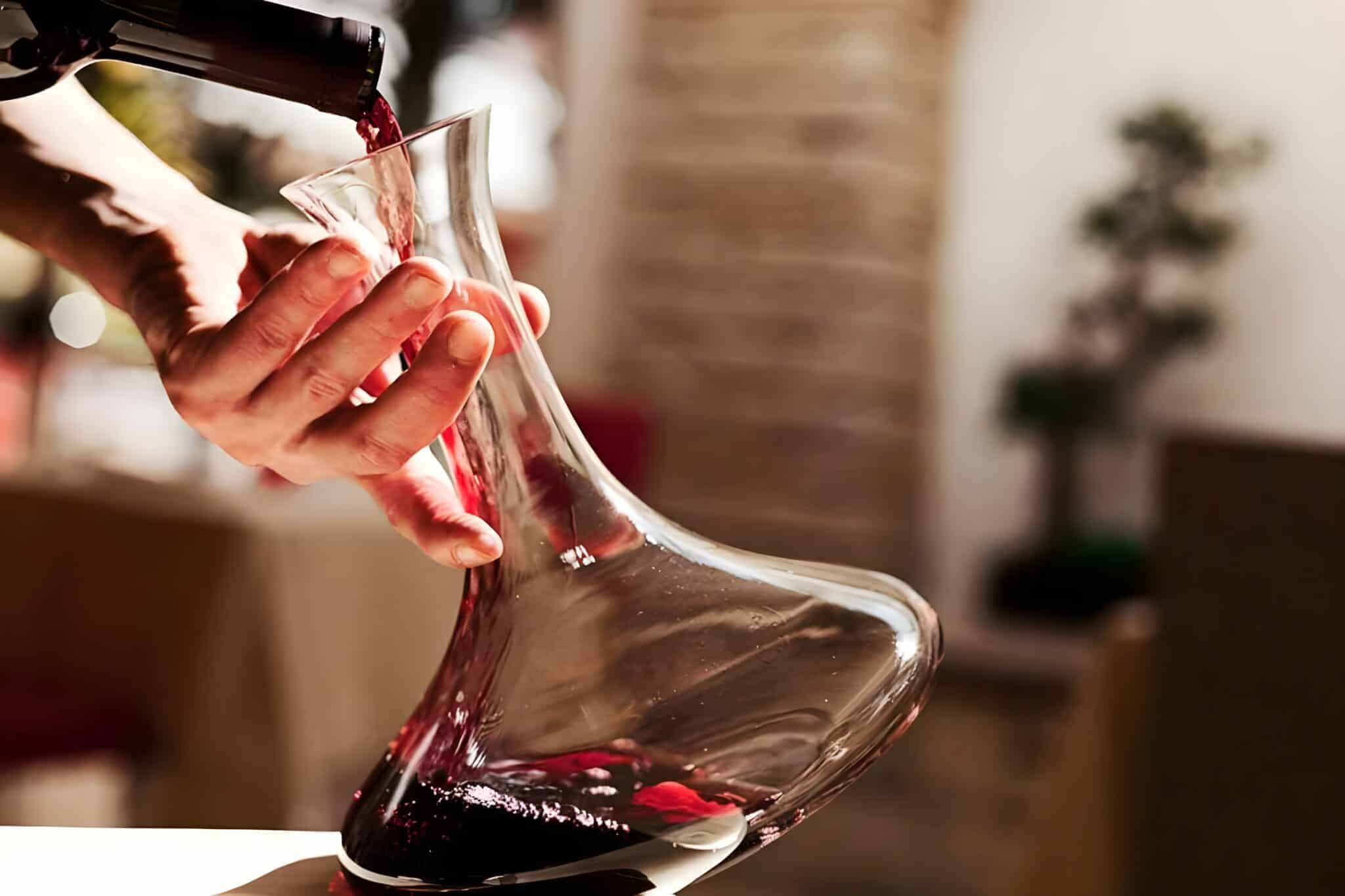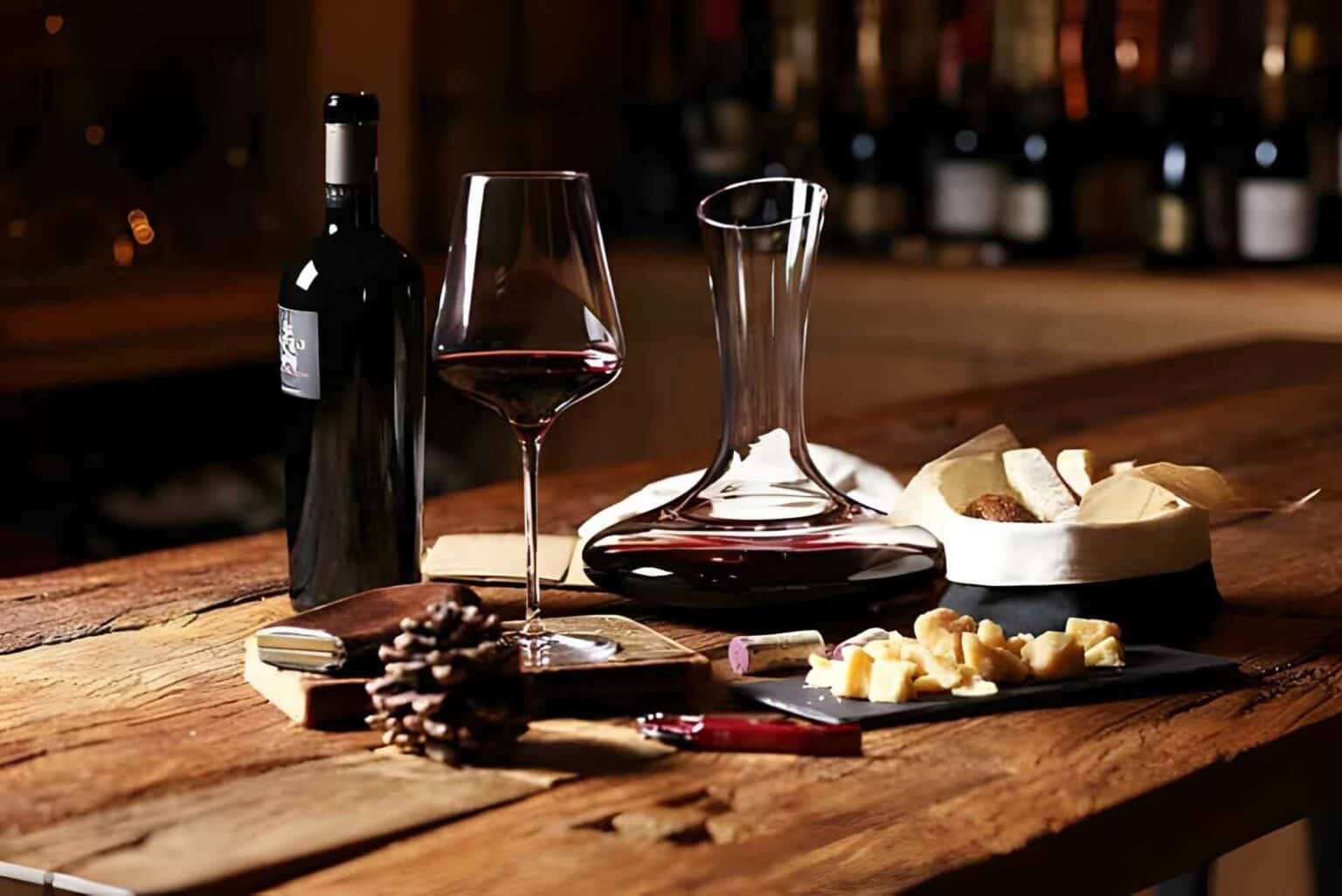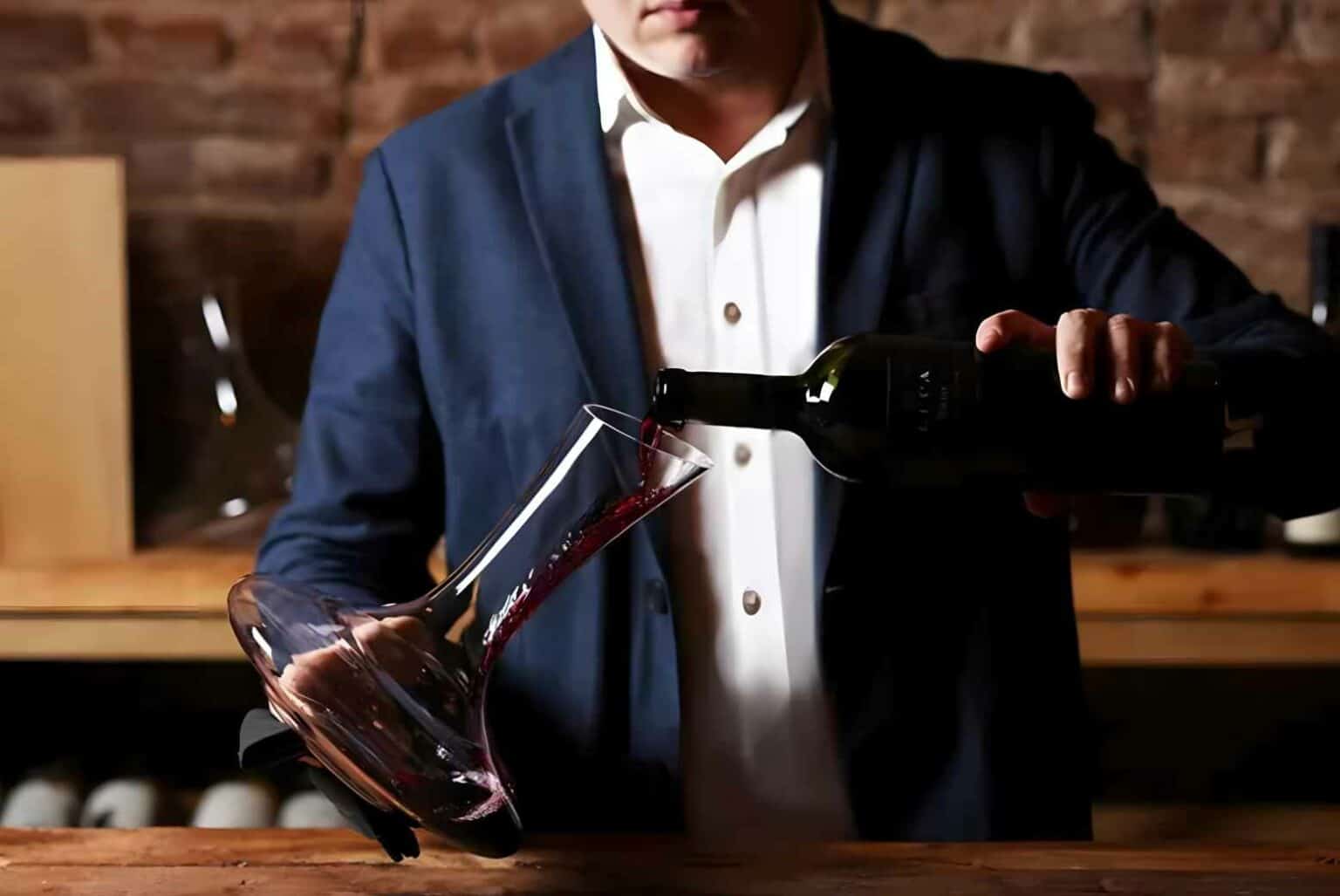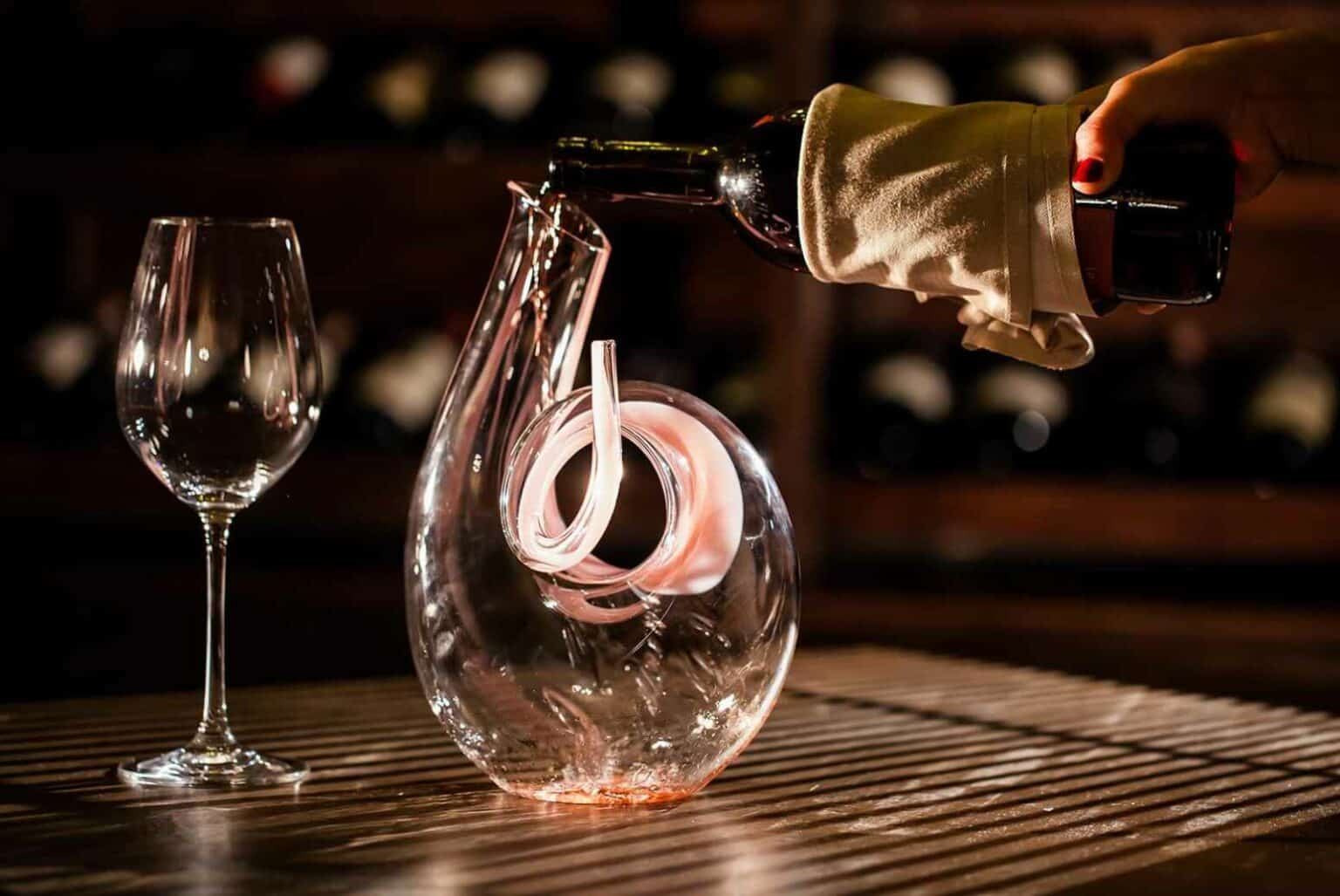Are you wondering what a decanter is and how to use it? Well, you are not alone! Many have heard and seen this vessel but still wonder about its use and purpose. Is it a wine necessity or only a fancy addition to your wine arsenal? Well, let us get to know this tool and answer this question today.
What Is a Decanter?

A decanter is an odd but also fancy-looking thing. It can easily pass off as an elegant ornament or trinket. Now, if you have seen one and thought the same, you need not worry. Many people have made the same mistake! However, let us put an end to this confusion today.
A decanter is a vessel that holds liquids. It can carry different spirits, but it is wine it often bears. It comes in different shapes and sizes, but usually, it is glass and has a wide, flat bottom with a long neck.
As the name suggests, it is a vessel used for decanting, a simple process of pouring liquid from one container to another. However, that is not all there is to a decanter. Let us discuss its purpose and why you might want to include it in your wine arsenal next.
What Is the Purpose of Using a Decanter?

The decanter has three purposes. First, it is similar to a carafe. It is a way to store and serve wine. Additionally, it is one way to make a statement while doing so. Like one’s taste in music or fashion, one’s choice of decanter can say a thing or two about the owner.
However, do not let that scare you. As we mentioned above, decanters come in different shapes and sizes. There are many choices. Choosing one is more of a fun venture than pressure putting.
Second, it is a way to filter the wine. As you might already know, wines can have foreign particles like sediments or cork crumbles.
Sediments are not harmful. However, they are unpleasant for both the mouth and the eyes. As you probably already know, we first eat with our eyes. Additionally, wines are not only for our taste buds but for our noses and eyes too! The sediments get in the way of getting the best out of the wine in more ways than one.
The decanter itself does not have a filtering system, though. It is in the method of transferring that the decanter helps in this area. (We will get back to this topic in the next section.)
Finally, the decanter helps in letting the wine breathe. Letting the wine breathe can be an odd phrase if you are only starting to get involved with this drink. However, it only pertains to allowing the wine to interact with oxygen.
While this interaction is disadvantageous to some other drinks, it can be helpful with wines. This process helps tone down the tannins. In other words, it lessens the bitter note. In turn, it helps let the flavors stand out more.
How to Use a Decanter?

There are two ways you can use a decanter. However, whichever way you want to go, you first want to ensure the bottle is upright for at least half a day before starting. This way, the residue goes all the way to the bottom, making things easier.
For the first method, all you have to do is pour the wine slowly from the bottle to the decanter. Additionally, you might want to tilt the bottle and decanter at an angle so that the transfer would be smooth with as little disturbance as possible. This one works for most – if not all – wines.
As we have said earlier, a decanter does not have its filtering system. However, by transferring the wine to another vessel, you can keep an eye out for the residue and keep it at bay. It is only by this method you can do that, though. The next one will not allow you to do so.
The second method is the opposite of the first. While you still want to be gentle to avoid spilled wine, slow and steady is not the way to do it here. In this method, you want the wine bottle upside down and the wine rushing to the bottom. All the swish and the splash help with accelerating the aeration.
The first method allows the decanter to fulfill all of its purposes. On the other hand, the second method does not. It accelerates the aeration.
However, in exchange, it does not help with getting rid of the sediment. The first method can work with almost any wine. The second one is best for younger ones. Those without any sediment-formation, yet.
When to Use a Decanter?
You want to use your decanter for a minute to half an hour before drinking. However, this time range is only an estimate. How long you want to use a decanter depends on what wine we are talking about and how long it has been in its bottle.
Additionally, not everyone agrees on how short or how long one should decant. With that, it might be best to do it your way. Take a sip of your wine and decant for different periods, then compare.
As you might already know, you can underdo it. However, you can also overdo it. Decanting for too long can dull not only the tannins but the flavor and other characteristics of the wine too. Additionally, the wine itself can also fade!
With all that, yes, you have to return the wine to its bottle after the process if you do not plan on finishing everything in one sitting. If you are going to empty the bottle, we hope you have a drinking buddy or two with you, though!
Does Decanter Shape and Size Matter?
Shape and size matter in more ways than one when talking about this vessel.
Yes, we did say that a decanter can say a thing or two about its owner. However, do not only focus on the looks. There is something more important than making a statement.
The shape and size will affect how much and how long before oxygen interacts with your wine. As you can see, how long or how short you have to decant will no longer only depend on the wine. It will now also depend on the decanter, so do not treat all decanters the same.
There are many fancy and lovely-looking decanters out there, and you might be itching to start your decanter collection. However, it might be best to stick to one if you are still getting the hang of this tool.
However, all this does not mean there are decanters we would tell you not to buy. If you are willing to wait, experiment, and go through some trial and error, go ahead and get that state-of-the-art decanter you have been eyeing for for ages!
Is Using a Decanter Worth It?

Finally, it boils down to this question. Is using a decanter worth it?
With everything we discussed today, it could be hard to deny that using a decanter is worth it. It is an extra step but a rewarding one. The benefit of using a decanter can vary from one person to another and one wine to another, though.
A decanter will likely be most beneficial to oenophiles who do not take well to bitterness but are big fans of red wines. However, it can help any wine drinker or lover to get the best out of their drinking experience.
A decanter is most beneficial with red vintages, but you can also use it for other types of wine. Yes, even sparkling wines. Others would tell you not to use a decanter for this type of wine. However, this vessel could help if one is not that big of a fan of too much fizz.
Different people and wines might benefit from this wine differently, but at the end of the day, if you have the patience (because who does not want to get to their wine fast?), we believe a decanter can benefit any wine drinker or lover.
Summary
Are you still wondering what a decanter is and how to use it? Well, we hope not!
Today, we answered what a decanter is and what its purpose is. Here, we learned that a decanter is a vessel that serves three purposes:
- Like a carafe, one can use it for storing and serving wine.
- It can help with filtering.
- It can also help by letting the wine breathe.
After that, we discussed how to use it and when to use it. Here, we learned there are two ways to use a decanter and that the question of when to use it ultimately depends on the person.
Finally, we discussed if a decanter is worth it.
We hope we get to help you get one step closer to being one of the best wine connoisseurs in your area. If you have other wine worries, feel free to check out other talks! Cheers!


George Moore, co-founder of Wine Flavor Guru, is a charismatic entrepreneur with a rich background in California’s wine industry. Alongside Sylvia, he transformed a Sonoma County vineyard into a source of premium wines. George’s expertise in sourcing exceptional grapes and his approachable style make wine appreciation both accessible and engaging.
